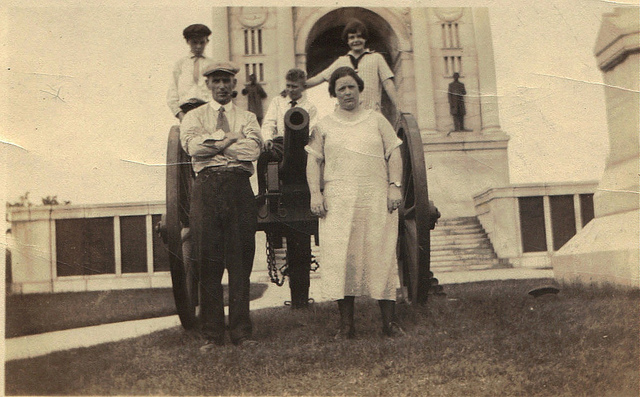
One of my relatives passed away this morning.
I have to admit I felt relief getting the news.
She was miserable by the end of her life. Actually, I don’t think I can remember a time when she was ever happy.
I felt peace knowing her suffering was over.
As I processed the news with her daughter, I realized this is a conversation I’m having with a lot of my clients:
How do we deal with having parents that don’t seem to know how to be happy, and may die that way?
Our parents are often very different from us and, let’s face it, they are not likely to change much in their later years. The differences we have with them can be so prevalent that we feel the need to distance ourselves as a coping strategy or protective mechanism.
Coping with realizations such as:
>my parent/s may not find happiness in this lifetime
>their emotional state is a choice they have made, often despite my efforts to help them become aware of this choice
>I can’t save anyone
>I never really learned how to be happy because they didn’t know how to teach me that
>they trigger me to the extent that I need to create boundaries for my interaction with them.
We come into this life instinctively looking to our parents to teach us the way to navigate it successfully.
Later on, we realize that joy is the only true measure of our success.
So when we learn that our parent can’t teach us how to cultivate joy, it can be devastating.
We feel like we have to take on this big life thing all alone, unassisted and unguided. That brings fear, overwhelm, and a lack of trust in the universe to support us.
And then there are the unhealthy patterns we may have picked up from them in childhood that we realize we need to rewire. Deep breath here.
So here’s my suggested recipe for navigating this experience:
~
1. Accept them the way they are.
Our parents, like everyone, have their own destiny or karma, and have attracted their present reality through their choices. Everyone gets to make their own decisions, and we all make choices that are self-destructive, like the choice to stay upset.
We don’t have to be BFF with our parents to love them and honor their role of giving us life. And we can do this from afar.
Allow your parents to be who they are, and understand that your role is to witness and support, not to engage.
2. Shift the focus to your ability to be happy.
The things that irk us the most about our loved ones are the things that irk us the most about aspects of ourselves. This is how relationships are vehicles of psychospiritual growth.
If we were raised by parents who don’t know how to relax, or process and express feelings in a productive way, it’s likely that we will have similar tendencies. Maybe they’re not as obvious, but they’ll show up when we’re depleted or under stress. We are imprinted with the perspectives and decision-making patterns of those we grow up around.
The best way to help a loved one who is stuck in perspectives and choices that are not serving them is to lead by example.
If we are emanating happiness, everyone around us will feel it. Those who are ready to pick up some tools will ask for our advice or reach out to us.
So, if your parents reach a point where they are ready to change, you’ll be best positioned to help them if you have come to a place where you’d like them to join you.
3. Create the time to work on your happiness.
No matter what practices we work with, from saying “I love you” to the mirror to meditation, we will find that we can cultivate happiness with discipline and attention.
Regardless of which tools or practices we employ, as long as they are compassionate and mindful, they will all be of benefit if we are consistent with them.
We need space, time and energy to incorporate new practices, so maybe the first step is to create 30 minutes a day to be with ourselves—mind, body and emotions. Once we are regularly making time for ourselves, then you can select whichever practices you’d like to engage in during that time.
Most of us have phases of interest or attraction to things—some are long phases and some are short. We might find journaling, therapy, walking on the beach in silence, dancing or meditation attracts us at this time. When it no longer has a draw for us, we can move on to another that feels like a better fit.
Let your intuition guide you to tools that will be relevant for you at that time.
4. Get to know your triggers.
If we begin to catalogue situations that trigger unhappy feelings, or in which we have perspectives and words that mirror our unhappy parent/s, we’ll get better at pre-empting our imprinted patterns. We’ll also be able to tailor our interventions.
For example, both of my parents often hold a perspective that “everyone takes advantage of you.” When I feel taken advantage of, I can recognize that I’m choosing perspectives that mirror those of my parents. Feeling taken-advantage-of happens when our needs are unmet even though we’ve met others’ needs.
I’ve learned that the taken-advantage-of feeling happens often when I don’t clearly state my needs.
So, I have sought out tools to more clearly state my needs (and be more aware of my needs), and surely enough, this now rarely happens.
Sometimes, being around our parents is a trigger. If we’ve already distanced ourselves from a parent relationship like this, but not had time to process our feelings about it, now might be the time to address how we feel about this situation, and use it as a platform for personal growth.
Because everyone is more triggered when depleted or stressed, self-care rituals are the foundation for our happiness. The time we spend nurturing ourselves through self-care will build our capacity for trust, openness and well-being even when in stressful situations.
If you are in this dynamic with your parent every day or several times a week, you may need to carve out clear time to move away from that pattern.
5. “Hold the Wellness.”
We are so blessed to have the awareness of our incredible power to shape our reality, or at least what we do with our reality, even the parts that we cannot control.
Awareness is the first step, and we probably wouldn’t have cultivated this awareness if we didn’t have people in our lives who showed us the opposite. Witnessing this state of perpetual unhappiness in our parents sparked a desire for something different within us.
Our gratitude for the contrast may pave the way to any forgiveness that needs to take place.
We could try saying, “Thank you,” to our parent/s for their contribution to who we are today. Repeat as necessary.
It’s actually pretty challenging to maintain this gratitude through every interaction. What I find easier is a practice I call holding the wellness. This means refusing to ride an emotional roller-coaster and staying in a place of wellness, for ourselves and our parents.
When my parents start to complain, I may hold the wellness by pointing out more positive perspectives, or simply by changing the subject to something that feels better—reframing and redirecting, respectively.
Sometimes, in my head, I’m repeating to myself, “my internal harmony is my top priority.” It took me years to get good at this, and it is well worth the time I invested to cultivate this skill—now if I could only apply this to being around my kids!
The beauty of this approach is that not only do you improve your own wellness, but in doing this you may draw out a different side of your parent/s or simply inspire them in some way.
~
Relephant:
How to Deal with an Emotionally Difficult Relative.
Author: Siva Mohan
Editor: Khara-Jade Warren
Image: fauxto_digit/ Flickr











Read 0 comments and reply